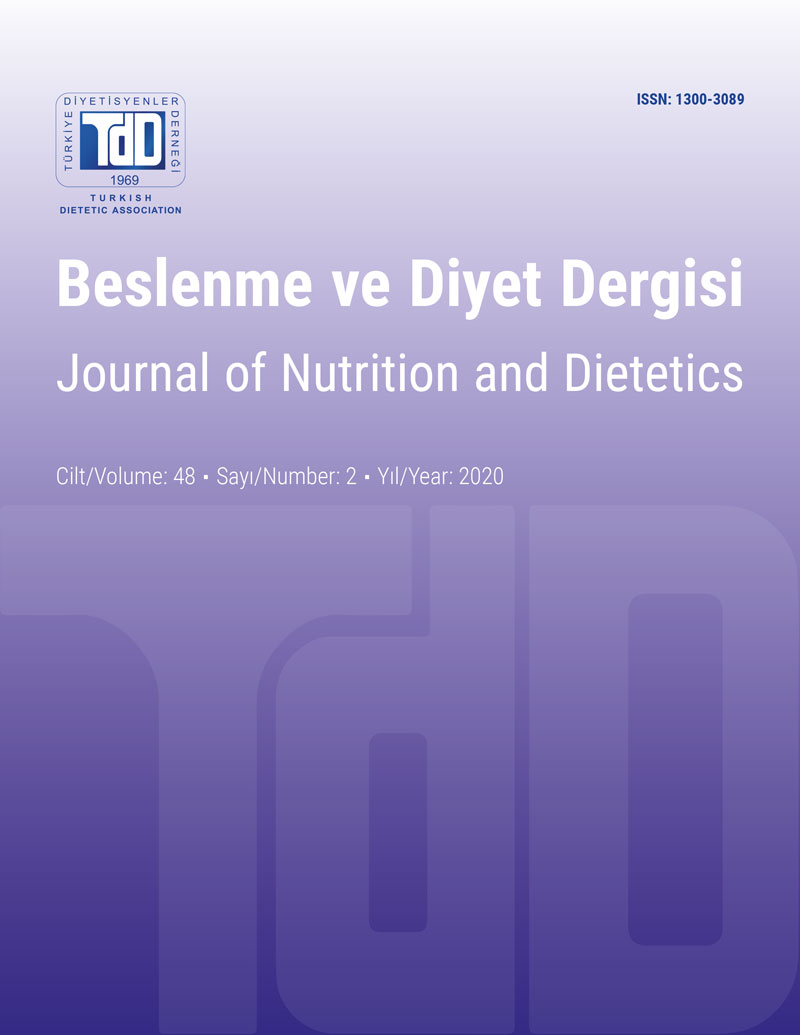Effect of Academicians’ Sleep Duration and Quality on Nutritional Status
DOI:
https://doi.org/10.33076/2020.BDD.1340Keywords:
Nutritional status, sleep duration, sleep quality, Pittsburgh Sleep Quality IndexAbstract
Aim: In this research, it was aimed to determine the effect of academicians’ sleep duration and sleep quality on nutritional status.
Subjects and Methods: The study completed with 183 volunteers working at Erciyes University. The questionnaire including demographic characteristics, anthropometric measurements, sleep duration and sleep quality was applied by researchers using by face-to-face interview method. In addition, participants’ 24-hour dietary intakes for three consecutive days with on day weekend were assessed using a self-administered questionnaire. Sleep quality was assessed using the Pittsburgh Sleep Quality Index (PSQI).
Results: The mean age of the participants was 35.41±8.74 years. PSQI was higher in those younger than 40 years and smokers (p<0.05). Mean PSQI was found similar both in men and women as 5.67±3.04, and 59% of the participants had ‘bad’ sleep quality. Sleep quality of those sleeping less than seven hours was found worse than those sleeping 7-8 hours (p<0.05). When participants were grouped according to sleep quality (good/bad) and duration (<7 hours/≥7 hours), their anthropometric measurements, energy and nutrient intakes were found similar (p>0.05). PSQI scores of the participants were found similar according to body mass index (BMI) groups (p>0.05). While PSQI score was weakly and negatively correlated with age, it showed no significant correlation with anthropometric measurements and nutrient intakes.
Conclusion: It has been determined that sleep duration affects sleep quality negatively; there was no effect of sleep quality and duration on nutritional status and anthropometric measurements. In order to understand this effect more clearly, studies with larger samples and one-to-one observation of food consumption are needed.

